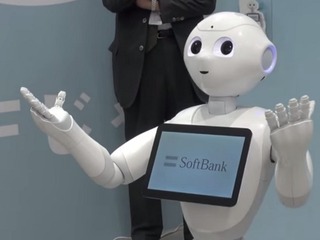
M&A activity in the warehouse robotic space
Robots are taking over the heavy lifting work inside warehouses
Autonomous robots present the ideal solution for large warehouses. Investing in robotics promises cost savings in the long term by reducing labor expenses, improving consistency, minimizing errors, and increasing output. There’s no better way to keep operations going non-stop – no PTO and insurance benefits necessary – than to employ a batch of robots to sort items, package products, batch orders, palletize, and shuttle them around the warehouse.
Not to mention the added benefits in inventory management systems, cleaning, labeling, and security. These robots are often powered by advanced technologies such as AI, machine learning, and computer vision, allowing them to perform tasks autonomously and adapt to new situations.

Companies like Amazon are leading the way in this space, with over 200,000 mobile robots scurrying around its facilities, showcasing the scale at which robotics can be deployed in warehouse operations. Walmart and UPS, as well as China’s Alibaba and JD.com, are catching up, partnering with or acquiring innovative automation developers. My colleague, Steven Loeb, recently zoomed in on these top players’ activities in warehouse automation and consolidation.
Amazon was among the first to consolidate the space with its acquisition of Kiva Systems in 2012. Since then there's been a flurry of acquisition activity.
A number of notable M&As occurred in the space over the past few years. SoftBank has been betting on the rise of warehouse robots and made two big acquisitions last year. One of them was Berkshire Grey, a maker of robots for retail, e-commerce, grocery, 3PL, and package handling. Berkshire offers to “Automate your most expensive processes to fulfill customer orders and stock your shelves at a fraction of the cost and time” and lists Walmart, FedEx, Target, Maersk, and Bealls as its top clients.
SoftBank’s second warehouse robotics bet last year was buying a stake in France-based Balyo, which makes robotic forklift technologies. Another notable move by SoftBank was forming a joint venture with warehouse automation company Symbotic to build AI-powered warehouses. Previously, the Japanese investor took a 40% stake in established Norwegian ASRS maker AutoStore.
Another M&A in the space last year, though rather shocking for its cheap value, was Ocado’s acquisition of 6 River Systems from Shopify. With the acquisition of 6 River, England-based ASRS developer Ocado added AMRs into its portfolio. Ocado’s technology platform includes automated warehouses, order fulfillment systems, and delivery logistics.
Rockwell Automation’s acquisition of Canada-based Clearpath Robotics was among the priciest deals in the sector last year. Worth $600 million, this acquisition includes Clearpath’s research and industrial division, OTTO Motors, which develops AMRs, fleet management, and navigation software. The integration of Clearpath’s AMRs into Rockwell’s portfolio is expected to accelerate the latter’s end-to-end autonomous production logistics solutions, providing safer and more efficient manufacturing environments for customers.
Going over into Germany, intralogistics provider Jungheinrich AG acquired innovative robotics company Magazino GmbH in August of last year. Magazino offers robots for intelligent line feeding in a mixed human-machine environment of industrial production.
These, and other, recent M&As in the warehouse automation sector are not just about investing in a promising business. The integration of automated guided vehicles and autonomous mobile robots is ushering in a transformation to warehouse operations and supply chain management. Deals like Jungheinrich's acquisition of Magazino GmbH and SoftBank’s expansion of its robotic company holdings exemplify this drive towards innovation and efficiency. They bring closer the future where heavy-lifting and tedious repetitive sorting tasks will no longer require extreme exertion or give people headaches.
What others could be snapped up?
There is no lack of startups developing new solutions for warehouse automation.
Among them, as we noted in an article titled: Solving the manufacturing labor shortage through automation, include Noovelia, "a company that creates AGV/AMR robots which reduce operating costs, processing time, errors and waste; inventory management software designed specifically for the agri-food industry, which allows for the tracking of raw materials, materials in process, finished products or packaging materials. It also has a real-time location system that provides accurate real-time production line data."
Some other companies we didn't include in that piece are NasdaqCM-listed Cyngn, offering AI-powered industrial automated guided vehicles (AGVs) and autonomous mobile robots (AMRs) for hauling, lifting, and delivery. The company, operating since 2013 out of Menlo Park, CA, offers to automate repetitive heavy load workflows and reduce costly safety incidents – plus, it has a suite of helpful analytics tools for extra optimization.
Here's another company: RightHand Robotics, which focuses on piece-picking specifically, realizing 24/7 autonomous order fulfillment. Its platform, RightPick, is a data-driven intelligent picking system that enables retailers to adapt to the demands of online commerce. RightHand technology combines a smart grasping mechanism with computer vision and AI, allowing its robots to handle a wide variety of items for e-commerce order fulfillment, including electronics, apparel, and groceries. This company was launched in 2015 by a DARPA challenge-winning team from the Harvard Biorobotics Lab, the Yale GRAB Lab, and MIT.
Image: Alibaba's logistics robot fleet on a university campus in China in 2022. Photo Credit: Alibaba Group
Related News


Alibaba and Foxconn fund Softbank's robotics division

